ึ๗ฒฅด๓ะใ Genome Blog
Posts
-
Closing down
Andrew Martin
ึ๗ฒฅด๓ะใ Genome
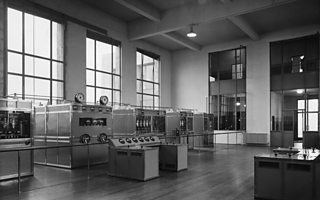
The ึ๗ฒฅด๓ะใ Transmitter Control Room at Brookman's Park, 1931
The ึ๗ฒฅด๓ะใ Genome blog is no longer being updated, as we complete the process of updating ึ๗ฒฅด๓ะใ Genome into the ึ๗ฒฅด๓ะใ Programme Index. At the same time, we have discontinued our social media feeds.
We hope you’ve enjoyed the pieces we’ve published, whether written by the in-house team or by our amazing guest bloggers. We’ve enjoyed sharing these eclectic musings on aspects of broadcasting history; but all things must pass, and ึ๗ฒฅด๓ะใ Archive Content and Partnerships, our parent department, is shifting the focus to new projects.
The ึ๗ฒฅด๓ะใ Programme Index is still part of the mix, marrying the ึ๗ฒฅด๓ะใ Genome database with new listings from the PIPS system which take the trail of ึ๗ฒฅด๓ะใ programmes up to the present day.
You can access the database at as usual, and get more archive updates by following @ึ๗ฒฅด๓ะใArchive on Twitter or Facebook.
The Programme Index (formerly ึ๗ฒฅด๓ะใ Genome) team
-
International Football at the 1948 Olympics
Paul Hayes
Guest blogger
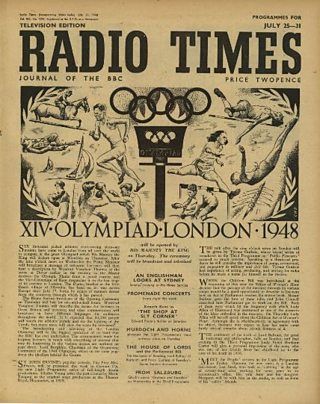
As Euro 2020 finally kicks off, guest blogger Paul Hayes sees parallels between this year’s championship and the first tournament broadcast on British television. ึ๗ฒฅด๓ะใ Genome helps to tell the story of football at the 1948 Olympic Games.
This summer, the ึ๗ฒฅด๓ะใ will televise a major international football tournament which is being held across a scattering of disparate venues, culminating in semi-finals and the final at Wembley Stadium. It’s a tournament which has been delayed due to a long-lasting, major international crisis. In these respects, Euro 2020 – as it’s still being called – strikingly parallels the very first international football tournament ever to have been broadcast on British television: the one held as part of the 1948 Olympic Games in London.
Those Olympics were an important landmark in the history of ึ๗ฒฅด๓ะใ TV. They may not have had the same mass audience or widespread cultural impact as the Coronation of Queen Elizabeth II five years later, but for the team at Alexandraโฆ
-
What's in the Studios?
Andrew Martin
ึ๗ฒฅด๓ะใ Genome
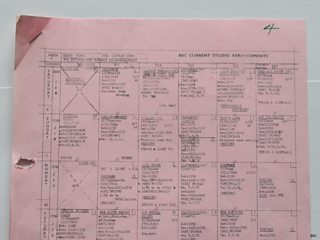
A detail from the ึ๗ฒฅด๓ะใ Current Studio Arrangements form for Week 4, 1976
The above piece of paperwork is one of the unsung documents of the ึ๗ฒฅด๓ะใ's administration, the form on which are logged the programmes which were scheduled to be produced in the ึ๗ฒฅด๓ะใ's electronic television studios in one week of January 1976. In this blog we take a look at what was being made that week, where it was being made - and see how the broadcasting landscape differed 45 years ago.
On the face of it, this is a fairly typical production week. There are a mixture of live shows and pre-recorded programmes, which might be going out later the same day, or days, weeks or months in the future. The studios listed are mostly at Television Centre, the main location for making ึ๗ฒฅด๓ะใ programmes at the time, located in west London. In this era when there was very little independent production, and most programmes which were not made in the ึ๗ฒฅด๓ะใ's electronic studios were films from a variety of sources, including those made by the ึ๗ฒฅด๓ะใ itself, and those bought in from abroad. This form does notโฆ
-
When is a Listing not a Listing? When it's a Gag...
Andrew Martin
ึ๗ฒฅด๓ะใ Genome
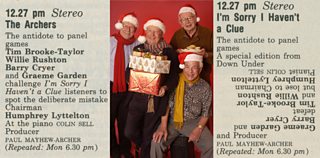
I'm Sorry I Haven't a Clue's Graeme Garden, Tim Brooke-Taylor, Barry Cryer and Humphrey Lyttleton, with a couple of their inventive listings...
Let's face it, Radio Times billings are supposed to tell you what a programme is about, who is in it, when it's on, and that kind of useful information. But sometimes, they veer off course...
Of course sometimes a programme is changed at the last minute, but by and large most listings describe what is going to be transmitted.
But once in a while, usually for comedic reasons, the billing hasโฆ
-
The View from the Top of the Form

This title sequence from the 1970s was accompanied as ever by the familiar theme tune "Marching Strings"
Television Top of the Form, which began in 1962, pitted teams of school children against one another in a challenging weekly quiz show. Ken Lindsay, a schoolboy at Elgin Academy in Scotland, remembers the excitement of appearing as a contestant in 1973.
"I was in the sixth year at school when we were approached to be on ," says Ken. "It was great – we were all really competitiveโฆ
-
Life on Earth: How electronic music helped us 'see' nature
Chris Williams
ึ๗ฒฅด๓ะใ Music Archivist
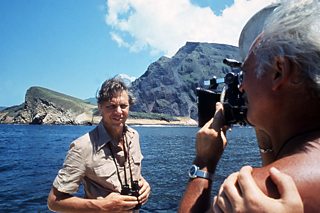
Sir David Attenborough during filming for the 1979 Life on Earth series.
David Attenborough's landmark 1979 series Life on Earth brought the story of the evolution of life on the planet to TV audiences in glorious, vivid detail. The ึ๗ฒฅด๓ะใ Music Library looks back at how a new style of music, by composer Edward Williams, was crucial to telling the story.
In reflecting on his personal history recording music around the world, Sir David Attenborough noted the singularโฆ
-
Coming to You Live - The Origins of Outside Broadcast Television
Andrew Martin
ึ๗ฒฅด๓ะใ Genome
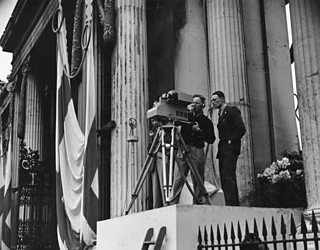
ึ๗ฒฅด๓ะใ technicians set up one of the three cameras used to cover the 1937 Coronation procession - the first true ึ๗ฒฅด๓ะใ television outside broadcast
Television outside broadcasts began with a bang on 12 May 1937, with the of King George VI and Queen Elizabeth.
Although the coverage was limited to a group of three cameras on Apsley Gate, at the corner of Hyde Park, it was a start – and was followed by an ever-widening range of outside broadcasts over the next two years, before television closed down on the eve of theโฆ
-
Patrick Troughton at 100: A Television Actor
Andrew Martin
ึ๗ฒฅด๓ะใ Genome
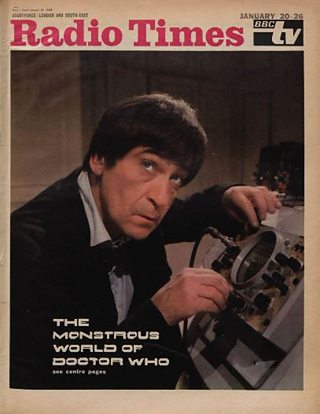
Patrick Troughton was the Radio Times cover star in January 1968, in a still taken from the recent Doctor Who story The Ice Warriors
Patrick Troughton is perhaps best remembered for a role he played originally for just three years – Doctor Who. However, he had a successful career that lasted over four decades, encompassing radio, TV and film.
Troughton, who was born 100 years ago, on 25 March 1920, was much-respected character actor. The bulk of his work was in TV, but he also worked in radio and films. He was less keen onโฆ
-
Tales from bohemia: The making of Arenaโs Chelsea Hotel
Maria DiFranco Gregg
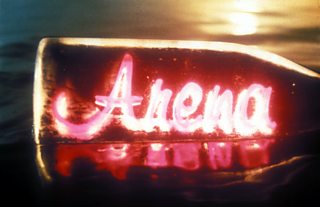
For five decades, the ึ๗ฒฅด๓ะใ’s flagship documentary series Arena brought to light unheard stories from outside the mainstream; tales of avant-garde artists, LGBTQ icons, feminists, civil rights activists and more. We spoke to Bafta award-winning Anthony Wall, who - as Editor between 1985 and 2018 - was instrumental in shaping the series. Wall talked to ึ๗ฒฅด๓ะใ Genome about his favourite Arena episode:โฆ
-
From Band Waggon to Barnacle Bill - a short history of theme tunes
Andrew Martin
ึ๗ฒฅด๓ะใ Genome
Programmes don't always stick with the same signature tune. After running six years, Match of the Day introduced a new theme in 1970...
They’re rarely mentioned in the programme schedules, but theme tunes are a vital ingredient in programme-making. We take a look at the evolution of signature music, and think about some best-loved examples.
So you’ve got a new television (or radio) series to produce. You’ve got the scripts, the performers, the studio and the designs for sets and costumes. But hang on – what about music? You mayโฆ



